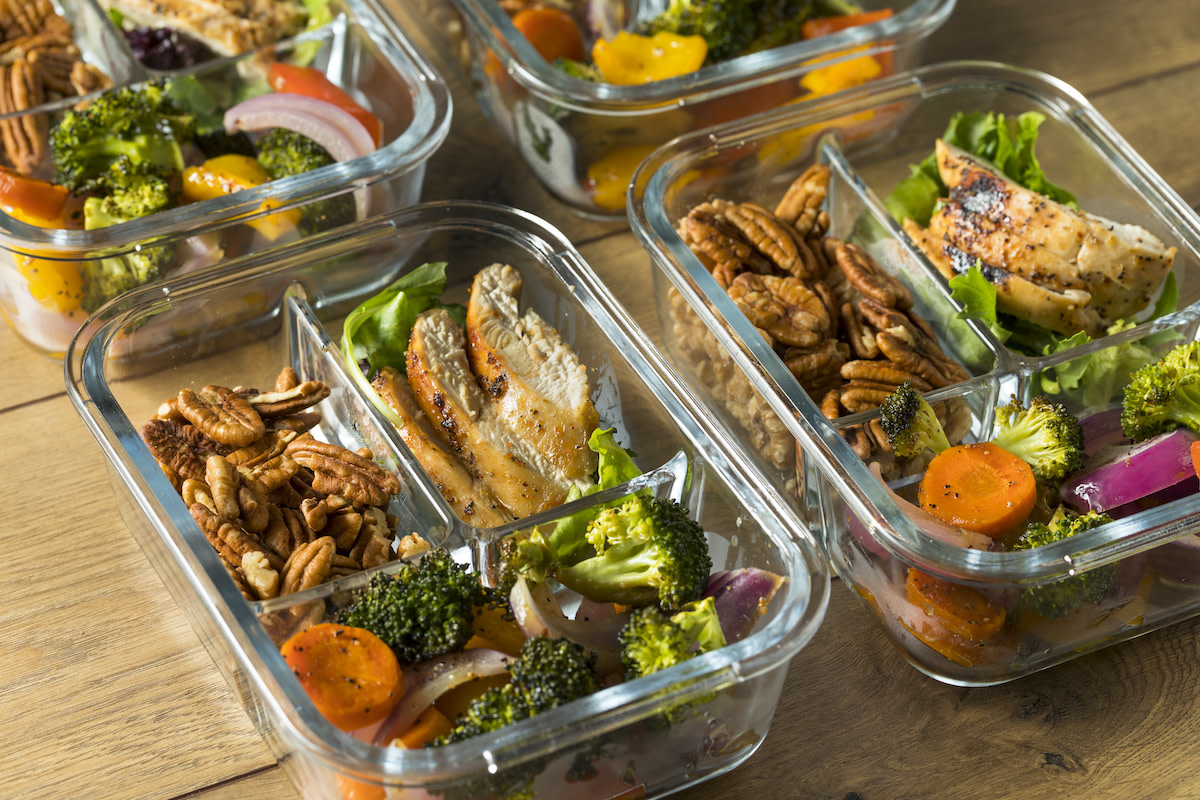How to Meal Prep: 5 Benefits of Meal Prepping
Written by MasterClass
Last updated: Sep 15, 2021 • 3 min read
Whether you want to have your lunch box ready to go before you wake up or are eager to eat a healthy dinner after a long day, learning how to meal prep can help you plan ahead and save time.
Learn From the Best
What Is Meal Prep?
Meal prepping is a meal planning process meant to accommodate a busy schedule. To meal prep, you cook or assemble a big batch of meals all at once. This kind of meal plan can prevent you from having to cook at the last minute at the end of a long day, as you’ll have a large batch of food already prepped and ready for reheating for the rest of the week.
5 Benefits of Meal Prepping
People meal prep to achieve a variety of different outcomes. Here are six common reasons people choose to follow a meal prepping strategy:
- 1. Money saved: Grocery shopping wisely is generally more cost-effective than going out to eat frequently. Shopping for groceries for meal prep can save money and make it easier to stick to a budget, since you will be buying multiples of the same ingredients. Settling on a shopping list and corresponding meal prep ideas can help you stick to a plan.
- 2. Multiple uses for food: Meal prepping can allow for creativity when it comes to using an ingredient in more than one way. For example, you may use the same base—like chicken breast you reheat every lunch or dinner for a week’s worth of meals—in burrito bowls or taco salad every night. But you’ll have the freedom to use different ingredients as toppings—like bell peppers, salad dressing, or other veggies—for each of your meal times throughout the whole week. This could also help you eliminate food waste in your kitchen.
- 3. New recipes: Meal prep encourages you to experiment with variety from week to week since you most likely won’t want to eat the same thing every night for several weeks in a row. As you cook or assemble more make-ahead meals, you might feel inspired to put new recipes into rotation.
- 4. Portion control: Batch cooking for meal prep can give you greater control over portion sizes. Whether you want to eat small portions or plan to eat a big helping of your favorite meal, you will be able to decide in advance exactly how much of your premade food you want to consume. This can give you far more control over portion sizes than grabbing takeout or fast food.
- 5. Time regained: A little prep time can go a long way in preparing you for the week ahead, and perhaps the greatest benefit of meal prepping is the amount of time it saves you. Rather than cooking a fresh meal every night or commuting to a restaurant for food, you can assure that you already have the meals you need for the week.
3 Tips for Prepping and Storing Meals
Meal prep can be a simple process with the right preparation. Consider these three tips a beginner’s guide to easy meal prep and storage:
- 1. Make a list of meals. You’ll need to consider which meals you want to eat and how many portions you want to prepare. Consider the cooking methods available to you. You can only cook so much on a stovetop or on an oven, but you can use both at once for different large batches of food. For example, you could cook a stir fry over one flame and fish over another while a healthy amount of chicken is heating up on a sheet pan in the oven. A slow cooker can give you yet an additional method of cooking more food at the same time.
- 2. Determine your ingredients. Before heading to the grocery store, make sure you know what sort of ingredients you will need to get ready for the week ahead. How exacting you are in making your grocery list is up to you. Calculating out ingredients with precision—such as the specific number of broccoli florets you will need for each stir-fry portion—can be tedious, but it will help you avoid potentially coming up short while you’re assembling meals.
- 3. Store meals correctly. The best meal prep strategy is one that takes storage into account—if you can’t store your food correctly, there’s no point in preparing vast quantities of it. Use plastic or glass containers as leak-proof meal prep containers. Then place your food storage containers in the refrigerator or freezer depending on the individual food’s storage requirements as well as how soon you plan to enjoy it.
Want to Learn More About Cooking?
Become a better chef with the MasterClass Annual Membership. Gain access to exclusive video lessons taught by the world’s best, including Gordon Ramsay, Gabriela Cámara, Chef Thomas Keller, Dominique Ansel, Yotam Ottolenghi, Alice Waters, and more.
